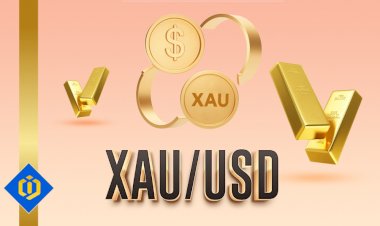The Role Gold Plays in Global Trade

Gold is a versatile and valuable asset that has been used as a currency and a store of value for centuries. Its value has remained relatively stable over time, making it a popular investment and a hedge against inflation. Gold's unique properties have also made it a key part of international trade and commerce, serving as a form of payment, collateral, and a means of exchange.
The use of gold in international trade is governed by a range of regulations and laws designed to ensure fairness, transparency, and compliance with international standards. The World Trade Organization (WTO) sets rules to ensure that trade in gold is conducted fairly and transparently, while the International Monetary Fund (IMF) regulates the use of gold in international monetary transactions. The Basel III agreement classifies gold as a Tier 1 asset, allowing banks to use it as collateral and as a means of raising capital.
In addition to these regulations, there are a number of laws that govern the use of gold in financial transactions, including the Anti-Money Laundering (AML) regulations and the Foreign Corrupt Practices Act (FCPA). AML regulations are designed to prevent money laundering and other illegal activities, while the FCPA prohibits companies from making bribes or other corrupt payments to foreign officials in order to obtain or retain business.
Gold is also subject to a range of international trade laws, such as the United Nations Convention on Contracts for the International Sale of Goods (CISG), which sets out the rules and procedures for conducting international trade, including the use of gold as a means of payment and as collateral.
-
The World Trade Organization (WTO) - The WTO is an international organization that regulates and promotes free trade between countries. While the WTO doesn't specifically regulate the use of gold in trade, it does have rules in place to ensure that trade in gold is conducted fairly and transparently. The WTO's rules require member countries to provide transparent and predictable trade policies, including policies related to the use of gold.
-
The International Monetary Fund (IMF) - The IMF is an international organization that promotes global economic growth and stability. One of the IMF's main functions is to facilitate international monetary cooperation and exchange rate stability. The IMF also regulates the use of gold in international monetary transactions. For example, the IMF sets the price of gold used in its transactions, and member countries are required to report their gold holdings to the IMF.
-
The Basel III Agreement - The Basel III agreement is a set of international banking regulations that govern the amount of capital that banks must hold in order to protect against financial instability. The agreement includes new rules that classify gold as a Tier 1 asset, which means that banks can use gold as a form of collateral and as a means of raising capital.
-
The Anti-Money Laundering (AML) Regulations - AML regulations are designed to prevent money laundering and other illegal activities. These regulations require financial institutions to implement measures to identify and prevent money laundering, including monitoring transactions that involve gold.
-
The Foreign Corrupt Practices Act (FCPA) - The FCPA is a U.S. law that prohibits companies from making bribes or other corrupt payments to foreign officials in order to obtain or retain business. The FCPA includes provisions related to the use of gold as a form of payment, and companies are required to ensure that their gold-related transactions comply with the law.
In addition to these regulations and laws, there are also a number of international trade laws that govern the use of gold in trade, such as the United Nations Convention on Contracts for the International Sale of Goods (CISG). These laws set out the rules and procedures for conducting international trade, including the use of gold as a means of payment and as collateral.
It's important for businesses and companies engaging in international trade to be aware of these regulations and laws, as non-compliance can lead to legal and financial consequences.
This article is written by Pooyan Ghamari | Blockchain and Technology Visionary

 content-team
content-team 


















